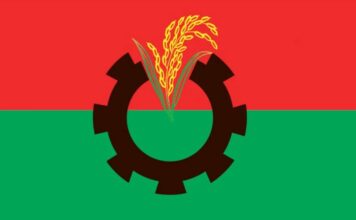The eleventh national parliament election is knocking on the door. And after a month and a half, the election government is being formed. Various discussions are going on everywhere about how that government will be and how the elections will be held. Whatever the government during the election, it will be led by Awami League President Prime Minister Sheikh Hasina. More than half of the current cabinet members are dropping out. In this case 'election government' will be formed with 15 to 25 people. At present there are 33 Ministers, 17 State Ministers, two Deputy Ministers and five advisors in the rank of Ministers. No minister-state minister of overage, controversial and 'super-intellectual' ideology is being kept in this election government. Awami League and coalition partner Jatiya Party, Workers Party and Jasad will have representatives in the government. However, it is not yet clear whether the current cabinet members will remain or someone new will join the government. Everything depends on the Prime Minister. Several high-level sources of the government have said that Prime Minister Sheikh Hasina's aim is to bring Awami League to power for a third consecutive term. That's why he is doing election-focused work including election campaign strategy, making manifesto. At the same time, he has started homework for the purpose of forming the government during the election. In the last week of October, the current cabinet will be reduced to form an interim government. He is saving in his laptop who will be kept and who will be excluded in this government. According to sources, the interim government will be formed in the last week of October. This government will perform routine duties then. According to the sources, there was no political agreement on the electoral system despite the door-to-door voting. The two main parties of the country are standing on two poles. The ruling Awami League says that the election period government will be formed according to the constitution. There is no way out. On the other hand, the opposition party BNP says that the current cabinet should be dissolved and elections should be held under a neutral government.
Political analysts say that it is not important whether the government is small or big during the election, this government should be acceptable to everyone. If not, there will be some kind of mistrust between the political parties regarding the vote. In this context, former cabinet secretary Ali Imam Majumdar said, 'The government during the election should be the choice of the people and the political parties who will participate in the elections. The size of the cabinet is small or big, but those who will be in the government should be trusted by the people.' Regarding the performance of the duties of the Election Commission, he said, 'The Election Commission will perform the duties as given in the constitution. It is the EC's job to bring the voters to the center, to give the nation an acceptable, free and fair vote.' When asked who will be in the government during the election, Awami League General Secretary Road Transport and Bridges Minister Obaidul Quader said, 'Who will be in the government during the election depends on the decision of Prime Minister Sheikh Hasina. He will keep whomever he likes and can exclude whomever he likes.' He said, 'No major decision will be taken after the formation of the government during the election period. Do regular routine tasks. The Election Commission will conduct the election. According to the sources, there is a discussion in the political circles about who will be in the cabinet of the government during the election. Curiosity is being noticed more among those who are currently Ministers and Ministers of State. During meetings, asking each other 'Are you in the cabinet?' Again, there is a discussion in various circles including the leaders of other political parties, how will the vote be done whoever is in the government during the election? Will voting be done in EVM process or old way? Will the Election Commission be able to give free elections? Lawyers and constitutional experts say that according to the constitution, power will be transferred from one government to another through elections. And during the elections, the previously elected government will continue to perform its duties. The election will be conducted by the Election Commission (EC). In this case, the duty of the government will be to assist the commission in the election process. There is no obligation to reduce the size of the government or form a government with only elected representatives during elections. However, the Prime Minister has the power to reduce or increase the size of the government. It is his constitutional power. He can do it anytime. Article 57(3) of the Constitution states, 'Nothing in this Article shall disqualify the Prime Minister from continuing in office until the successor to the Prime Minister assumes office.' This means that whoever is elected as Prime Minister through the 10th National Assembly elections will remain in office until a new Prime Minister takes over. In other words, according to this provision, the Election Commission will organize the 11th National Parliament elections while keeping Prime Minister Sheikh Hasina in office. According to the constitution, the Election Commission will conduct all types of elections, including national ones. In this regard, the constitution says that the President will appoint necessary employees to fulfill the duties of the Election Commission. The executive branch of the government will assist the EC in carrying out its duties. In the light of these two provisions of the constitution, the government has an obligation to cooperate with the EC and to consult the EC in making decisions during elections.










